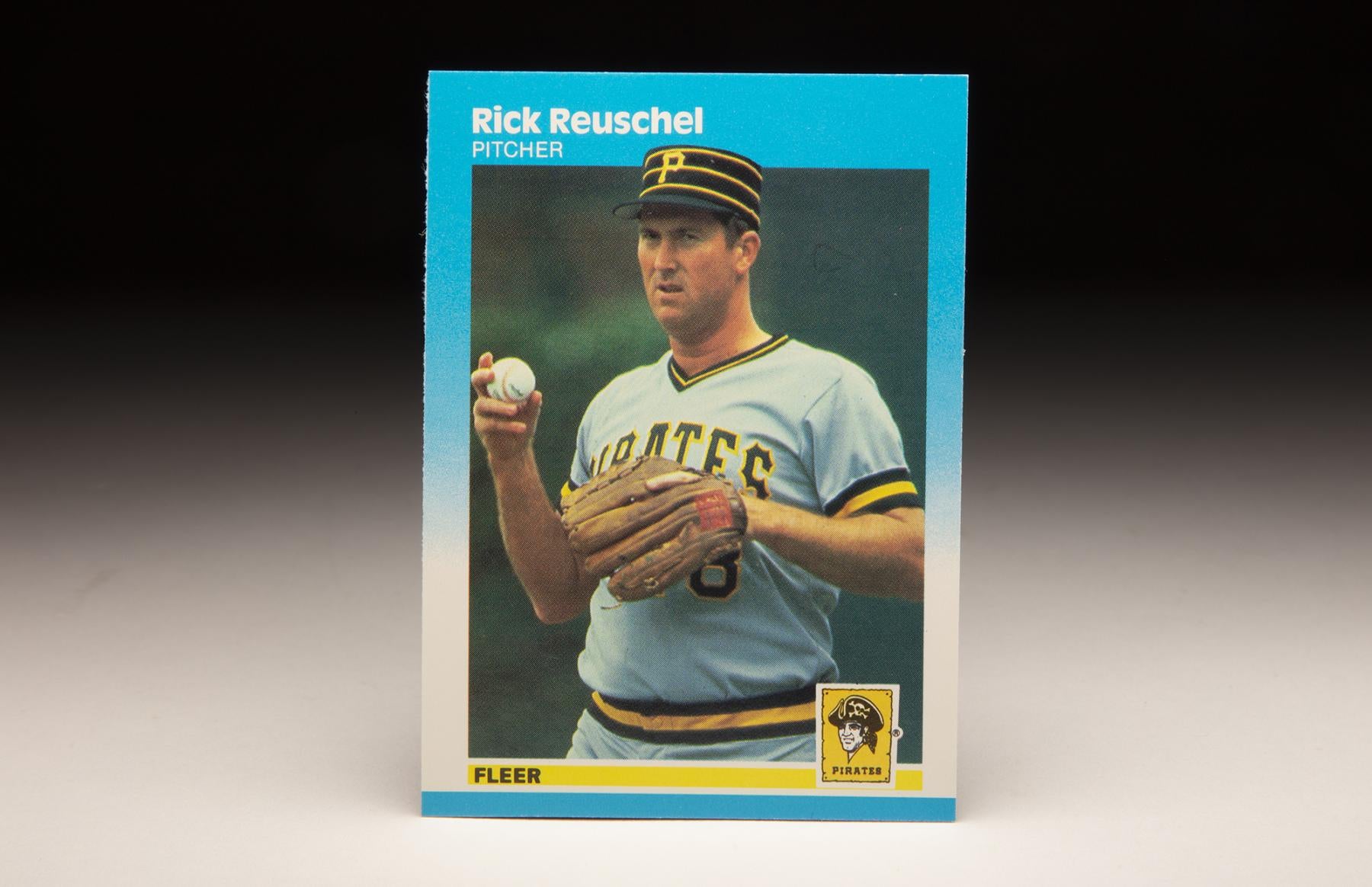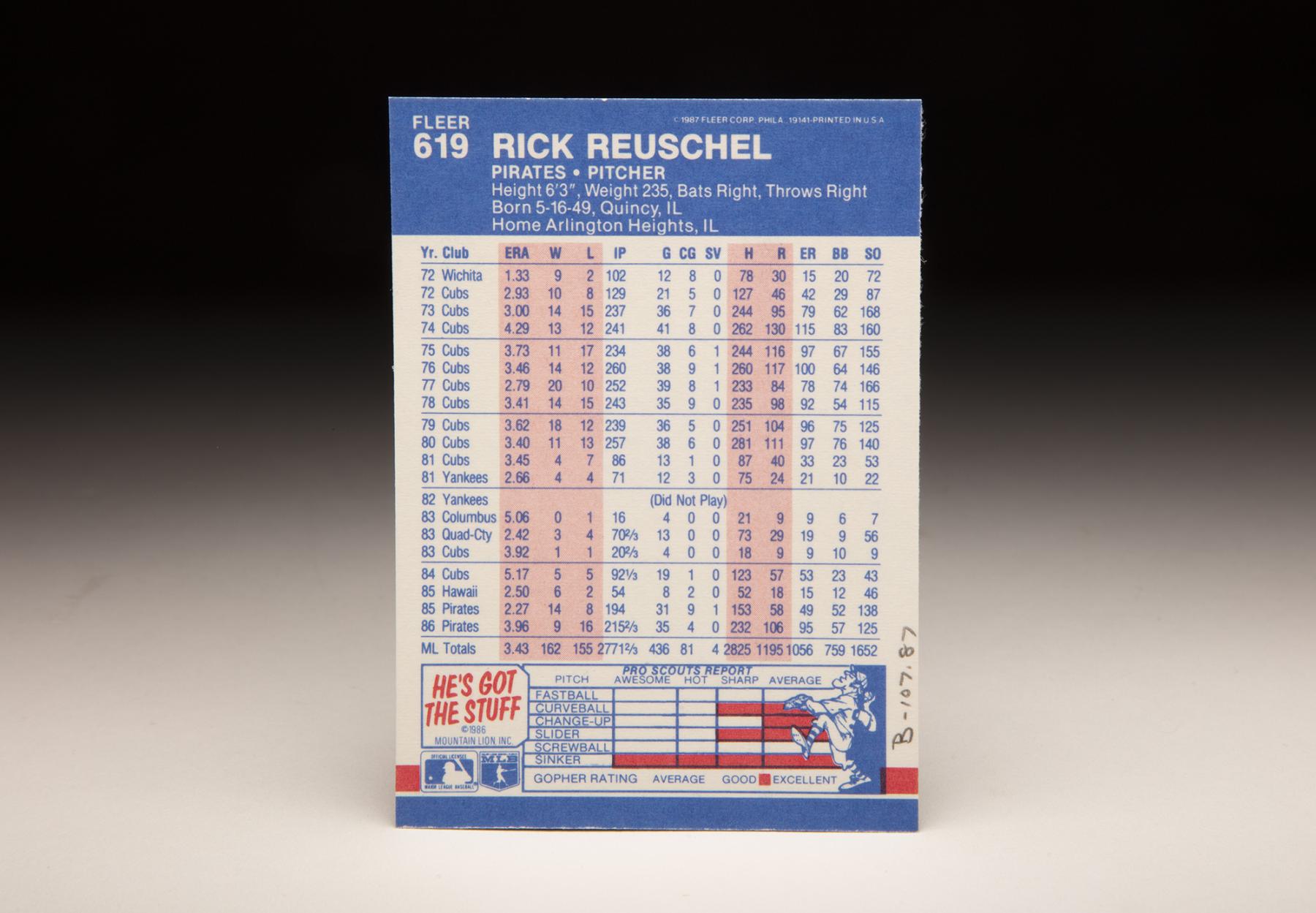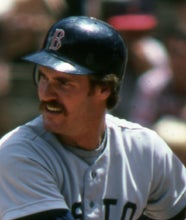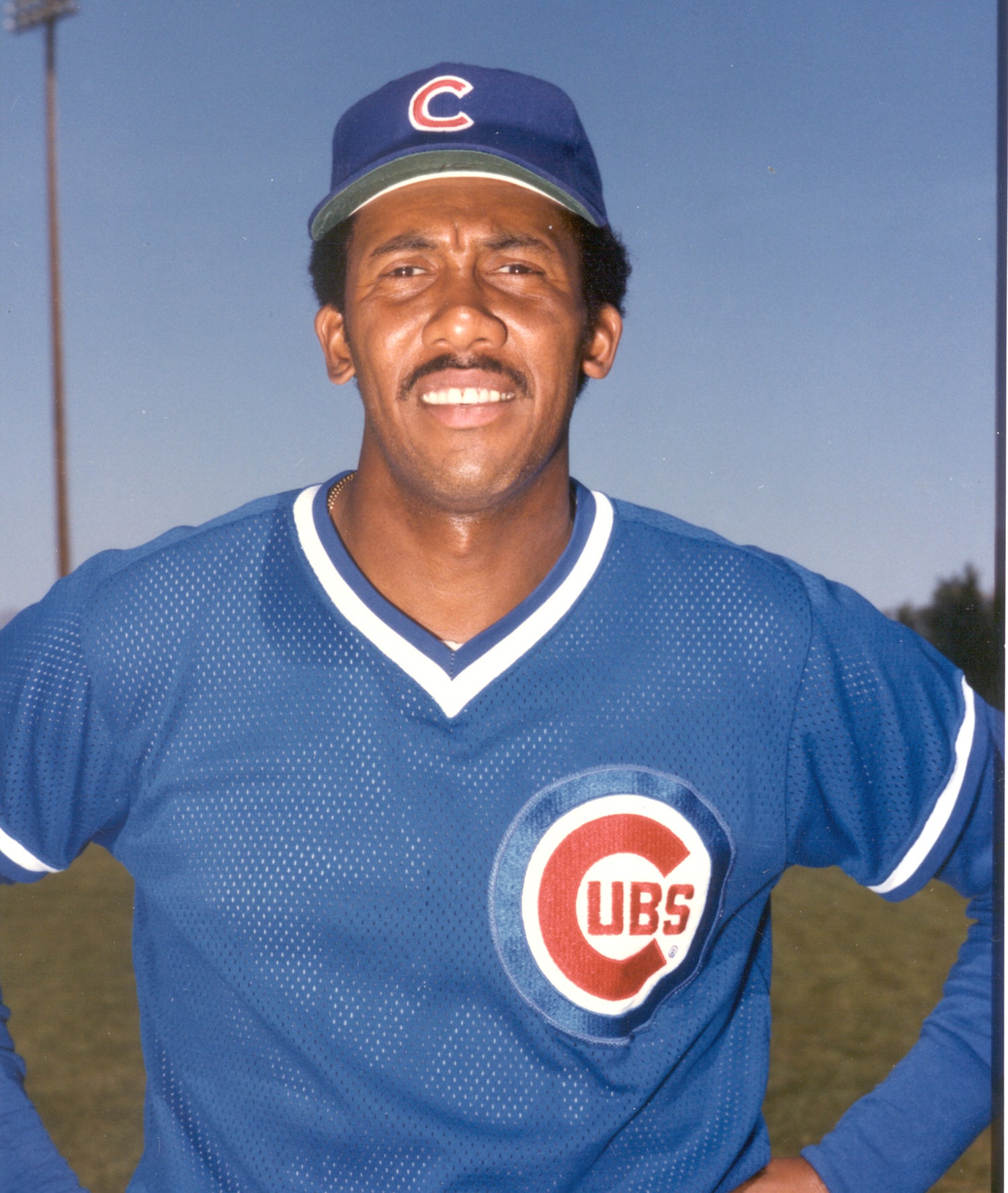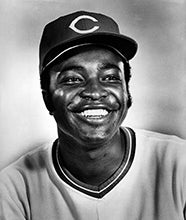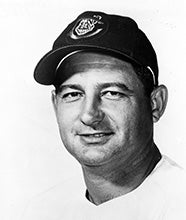- Home
- Our Stories
- #CardCorner: 1987 Fleer Rick Reuschel
#CardCorner: 1987 Fleer Rick Reuschel
The number is so shocking for traditional baseball fans that is almost looks like a typographical error.
The category: Career Wins Above Replacement for pitchers.
The number: 68.1, earned by Rick Reuschel.
The six non-active players directly behind Reuschel: Hall of Famers Red Faber, Jim Palmer, Vic Willis, Ted Lyons, Stan Coveleski and John Smoltz. And just behind that group: Roy Halladay and Bob Feller.
Numbers can lie, but this is for certain: Rick Reuschel was an underappreciated ace.
Born Rickey Eugene Reuschel on May 16, 1949, in Quincy, Ill., a Mississippi River town about two hours north of St. Louis. One of eight children – seven boys – who grew up on a farm in nearby Camp Point, Ill., Reuschel and his brothers focused on baseball when their farm chores were done.
“We’d play a lot with a rubber ball,” Reuschel told the St. Louis Post-Dispatch during his rookie big league season of 1972. “One would get up against the barn and the other would throw to him.”
Official Hall of Fame Merchandise
Hall of Fame Members receive 10% off and FREE standard shipping on all Hall of Fame online store purchases.
It would lead Rick and his brother Paul to the big leagues.
An all-around athlete whose agility was often hidden by his stocky 6-foot-3, 230-pound frame, Reuschel went undrafted out of high school and enrolled at Western Illinois University. Reuschel was 10-0 with a 1.29 ERA as a junior in 1969 and by the 1970 season, Reuschel was named the Interstate Intercollegiate Athletic Conference Most Valuable Player.
Thanks to his brother Paul – who was drafted in the 26th round by the Reds out of Camp Point’s Central High School but did not sign – Reuschel was on the radar for big league teams. The Cubs selected Rick in the third round of the 1970 MLB Draft. He was immediately sent to Huron, S.D., of the Class A Northern League, where he went 9-2 with a 3.53 ERA in 14 starts.
Meanwhile, Paul had enrolled at Western Illinois and was selected by the Cubs in the 1968 MLB Draft. Paul was 10-10 with Double-A San Antonio in 1970, and Rick followed him to San Antonio in 1971, going 8-4 with a 2.31 ERA in 16 starts.
By this time, Rick had earned a reputation as having one of the best curveballs in the minor leagues. Mixing in a change-of-speed slurve and a sinker, Reuschel induced soft contact and ground balls with regularity.
After going 9-2 with a 1.32 in 12 starts for Triple-A Wichita in 1972, Reuschel was summoned to Chicago. He debuted on June 19, striking out the only batter he faced – San Francisco’s Bobby Bonds – in an abbreviated relief outing.
Reuschel got his first big league win the next day with six innings of relief against the Giants, then moved into the rotation on June 26, allowing just six hits and no walks in an 11-1, complete game win over Philadelphia. By season’s end, Reuschel was 10-8 with a 2.93 ERA over 129 innings and was named the right-handed pitcher on Baseball Digest’s All-Rookie team.
By the middle of the 1973 season, many observers believed that Reuschel was poised to take Fergie Jenkins’ position as the Cubs’ staff ace. A three-hit shutout of the Astros on June 12 lowered his ERA to 1.74, and Reuschel was 12-8 with a 2.41 ERA after a shutout of the Expos on Aug. 3 before a seven-game losing streak slowed him down as he finished the year with a 14-15 record, 3.00 ERA and 168 strikeouts in 237 innings.
Meanwhile, Jenkins failed to reach the 20-win mark for the first time since 1966. On Oct. 25, 1973, the Cubs sent Jenkins to the Rangers for Vic Harris and Bill Madlock, effectively tying their fortunes to Reuschel.
“He challenges the hitters,” Cubs manager Whitey Lockman told United Press International while comparing Reuschel to 300-game winner Early Wynn. “He doesn’t let things bother him.”
Reuschel started the second game of the season for the Cubs in 1974 and finished the year at 13-12 with a 4.30 ERA over 240.2 innings for a Cubs team that lost 96 games. After finishing better than .500 for six straight seasons from 1967-72, the Cubs were now mired in a stretch of 11 straight seasons without a winning record.
Reuschel, however, continued to provide innings and victories. And after years of toiling in the minors, Paul Reuschel joined Rick in Chicago in 1975, beginning a five-year big league career where he would work mostly as a reliever with the Cubs and Indians.
After a hard-luck 1975 season that saw Rick go 11-17 with a 3.73 ERA, he bounced back with a 14-12 mark and 3.46 ERA in 1976. Then in 1977, Reuschel began the season with 12 wins in his first 14 decisions and earned his first All-Star Game berth as the Cubs were in contention before finishing the year at 81-81.
“The team is playing better defense, hitting better and playing with confidence,” Reuschel told United Press International in 1977 when his record stood at 15-3. “That’s the difference and the statistics bear me out. Before I was losing or not getting any decision, and I attribute the change to the ball club.”
Reuschel pitched a scoreless inning in the National League’s 7-5 win over the AL at Yankee Stadium on July 19, then began the second half with a pair of five-hit shutouts against the Braves and Reds.
“I don’t think he knows how to throw a high pitch,” Reds second baseman Joe Morgan told the Chicago Tribune after Reuschel’s 3-0 win on July 26.
Reuschel was the odds-on favorite to win the NL Cy Young Award for most of the season, but was saddled with five losses in September and finished the year with a 20-10 mark and 2.79 ERA. The Phillies’ Steve Carlton would be named the Cy Young Award winner after finishing 23-10, with Reuschel in third place behind Carlton and the Dodgers’ Tommy John.
“I didn’t do anything different,” Reuschel told the Los Angeles Times of his success in 1977. “My other stats are all the same. I feel like I’ve thrown the ball well enough my whole career to win more games than I have.”
Reuschel was in demand on the speaker’s circuit during the winter of 1977-78, but turned down almost all offers to play with the Cubs’ charity basketball team and to work on his new Chicago home. True to his word, his 1978 season stats were much like those in 1977 – but Reuschel’s record slid to 14-15 despite a better WHIP (1.191 to 1.218), more complete games (nine to eight) and 20 fewer walks than he had in 1977. He also made the first of seven career Opening Day starts.
In 1979, Reuschel went 18-12 with a 3.62 ERA, then led the NL in starts with 38 in 1980 while going 11-13 with a 3.40 ERA.
Then in 1981, Reuschel was 4-7 with a 3.47 ERA in 13 starts when the Cubs shook up their world and his. On June 12, 1981 – the start date of a strike that shut down MLB for almost two months – Reuschel was traded to the Yankees in exchange for Doug Bird, Mike Griffin and $400,000. For the first time, Reuschel found himself pitching for a World Series contender.
“I really didn’t think I had been missing anything,” Reuschel told the New York Daily News. “I’ll be a small-town farm boy wherever I am.
“No matter what I do here, it’s going to be easy for me to stay in the background. The background is where I like it.”
When play resumed in August, Reuschel went 4-4 in 12 appearances for the Yankees as New York advanced to the ALDS vs. the Brewers. In his first postseason game, Reuschel allowed two runs over six innings and took a hard-luck 2-1 loss in Game 4. The Yankees won Game 5 to advance to the ALCS, where they defeated the Athletics, but Reuschel did not pitch in any of the three games.
Then in the World Series vs. the Dodgers, Reuschel started Game 4, working two scoreless frames before giving up two runs in the third. With the Yankees ahead 4-2 in the fourth, Reuschel was pulled after walking Rick Monday to start the inning and then giving up a single to Pedro Guerrero.
The Yankees would lose the game 8-7.
In Game 6, Reuschel came on in relief of Ron Davis in the sixth inning, allowing an RBI groundout and a run-scoring single. The Dodgers would win the game 9-2, wrapping up the World Series and denying Reuschel a championship ring.
Following the season, Reuschel and the Yankees agreed to a two-year contract extension that would carry him through the 1985 campaign. But in Spring Training of 1982, Reuschel’s shoulder began to ache.
“There was no sharp pain that knocked me over,” Reuschel told the Associated Press. “It was just an accumulation of innings and pitches over the years until it reached a time where I couldn’t work my arm loose anymore.”
Reuschel was diagnosed with a shoulder impingement and underwent surgery, missing the entire season.
On June 9, 1983, the Yankees released Reuschel after watching him struggle in four starts at Triple-A Columbus. He soon contacted the Cubs, who signed him to a minor league deal and sent him to Class A Quad Cities of the Midwest League.
“It’s been a little humbling, and I don’t think that’s bad,” Reuschel said. “I’ve enjoyed my time down here (with Quad Cities) so far. It makes you more appreciative of the major leagues.”
Reuschel was also happy to be back with the Cubs.
“I was never happy with the trade,” Reuschel told AP. “I was always checking the scoreboard to see how the Cubs were doing.”
After going 3-4 with a 2.42 ERA in 13 starts for Quad Cities, Reuschel returned to the Cubs in September – starting four games and working to a 3.92 ERA in 20.2 innings. But after going 5-5 with a 5.17 ERA in 19 appearances in 1984, his career appeared to be over when the Cubs allowed him to become a free agent.
On Feb. 28, 1985 – with Spring Training well underway – Reuschel signed a minor league deal with the Pittsburgh Pirates. It would launch a second act of his career that would see Reuschel become one of the best pitchers in the game.
The 1985 Pirates lost 104 games, but Reuschel went 14-8 with a 2.27 ERA over 194 innings, keeping hitters off balance with a variety of curves and sinkers. He even won his first Gold Glove Award at the age of 36 and continuing his career-long solid work at the plate, recording 10 hits (the eighth of 11 seasons of his career posting a double-digit hit total) while scoring eight runs and driving in seven more. Reuschel was named the NL Comeback Player of the Year and also won MLB’s Hutch Award.
The Pirates rewarded him with a three-year deal worth $2.1 million.
“Getting the opportunity to prove myself was the hard part,” Reuschel told the Pittsburgh Press. “Actually, you have to make a decision whether you want to play or not. I decided I wanted to play. Then you do whatever it takes.”
The league caught up with Reuschel a bit in 1986 as he went 9-16 with a 3.96 ERA for a rebuilding Pirates team. But in 1987, Reuschel bounced back with a quick start as Pittsburgh’s young lineup – along with manager Jim Leyland – infused energy into the team. But with the Pirates a couple years away from contending, Reuschel became a sought-after trade chip after earning his second All-Star Game selection.
On Aug. 21, 1987, Pittsburgh traded Reuschel to the Giants in exchange for pitchers Scott Medvin and Jeff Robinson. San Francisco, unexpectedly vying for the NL West title, now had a bona fide ace.
Reuschel won five of his first six decisions with the Giants, helping San Francisco hold off the Reds in the race for the division title while finishing with an overall record of 13-9 to go with NL-best totals in complete games (12) and shutouts (four). Back in the postseason for the first time since 1981, Reuschel started Games 1 and 5 of the NLCS vs. the Cardinals, losing the opener and drawing a no-decision in a Game 5 win for the Giants.
St. Louis would win the series in seven games, but Reuschel finished third in that year’s NL Cy Young Award voting and won another Gold Glove Award.
Reuschel continued his fine work in 1988, going 19-11 in an NL-high 36 starts with a 3.12 ERA over 245 innings. Reuschel was named to the All-Star Game but declined the invitation in favor of attending his own wedding, which was scheduled for the All-Star break.
Reuschel turned 40 during the 1989 season, and in Spring Training the Giants extended his contract through 1990. With a record of 12-3 with a 2.12 ERA at the All-Star break, Reuschel was named the NL’s starter in the Midsummer Classic.
His outing was spoiled when – with former United States President Ronald Reagan on the microphone with Vin Scully – Bo Jackson led off the bottom of the first with a massive home run to center field at Anaheim Stadium. Wade Boggs followed with another homer to tie the game at 2, and the AL went on to win the game 5-3.
“Bo Jackson says hello!” exclaimed Scully on NBC.
But Reuschel did not let the homers bother him, finishing the season 17-8 with a 2.94 ERA and helping the Giants win another NL West title. Reuschel failed to escape the first inning in a Game 2 loss to the Cubs in the NLCS, but bounced back four days later with eight brilliant innings in Game 5, allowing only one unearned run in a 3-2 win that gave the Giants the NL pennant.
Reuschel – battling a groin injury – started Game 2 of the World Series against the Athletics and gave up five runs in four innings in a 5-1 loss. Oakland went on to sweep the series.
In 1990, a knee injury limited Reuschel to a 3-6 record and 3.93 ERA – sidelining him for all of June, July and August.
After making just four appearances in April of 1991, Reuschel again was forced to the disabled list due to knee problems. On June 19, the Giants released Reuschel, ending his career.
“I think that’s what he wanted, to be released,” Giants teammate Don Robinson told Scripps Howard News. “He was in bad shape – his knee was bad, then he tried to throw on the side and hurt his shoulder. He knew it was time.”
Reuschel finished his career with a record of 214-191 with a 3.37 ERA and 2,015 strikeouts. He would post 12 seasons with at least 200 innings pitched.
Though he could have walked away from the game a number of times during his career, Reuschel refused to go down without his best effort.
“I figure that if I make other plans, it would just give me an excuse to quit my comeback,” Reuschel said when he was pitching in Class A at the age of 34. “And I’m not a quitter.”
Craig Muder is the director of communications for the National Baseball Hall of Fame and Museum
Related Stories
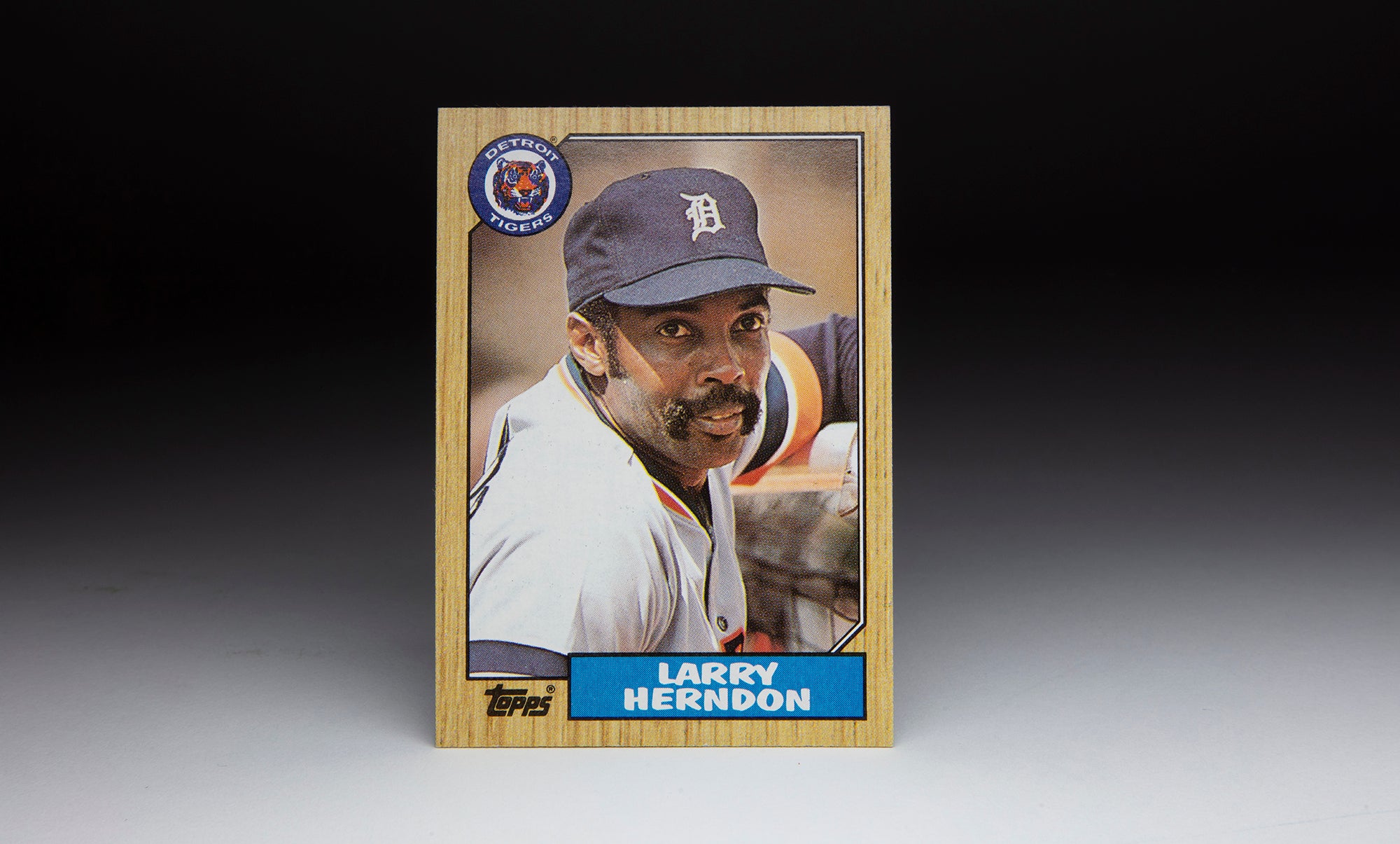
#CardCorner: 1987 Topps Larry Herndon
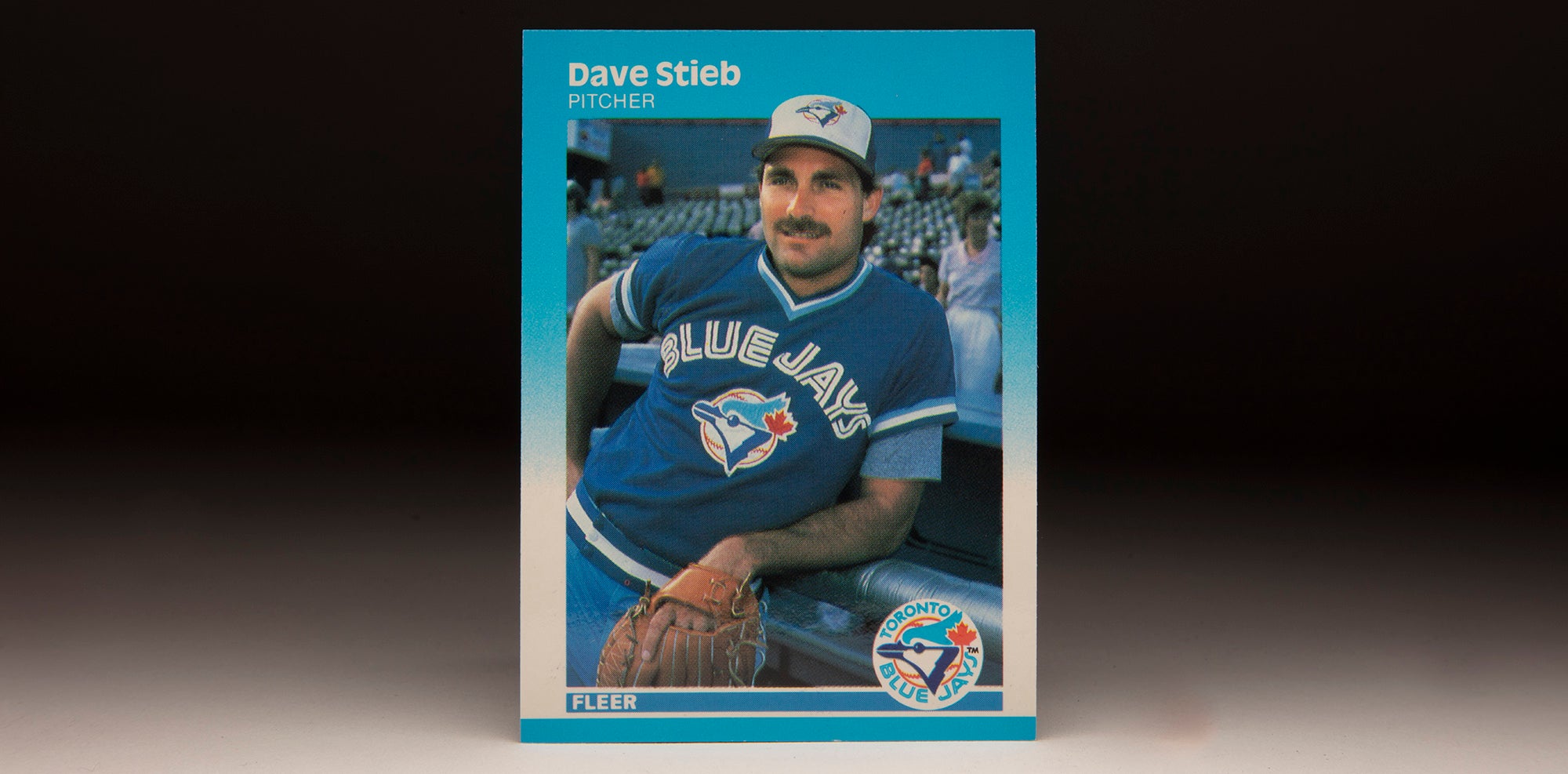
#CardCorner: 1987 Fleer Dave Stieb
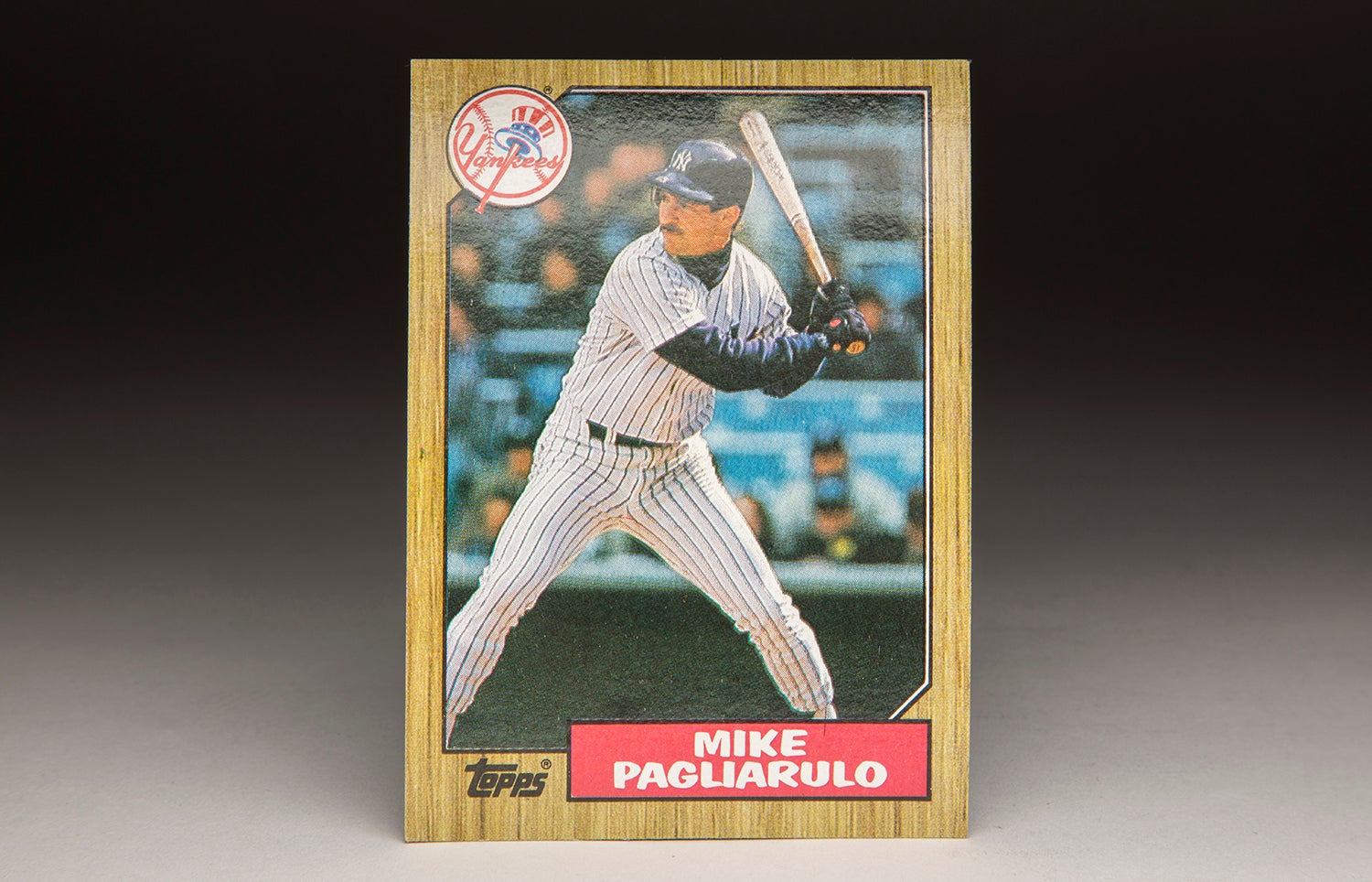
#CardCorner: 1987 Topps Mike Pagliarulo
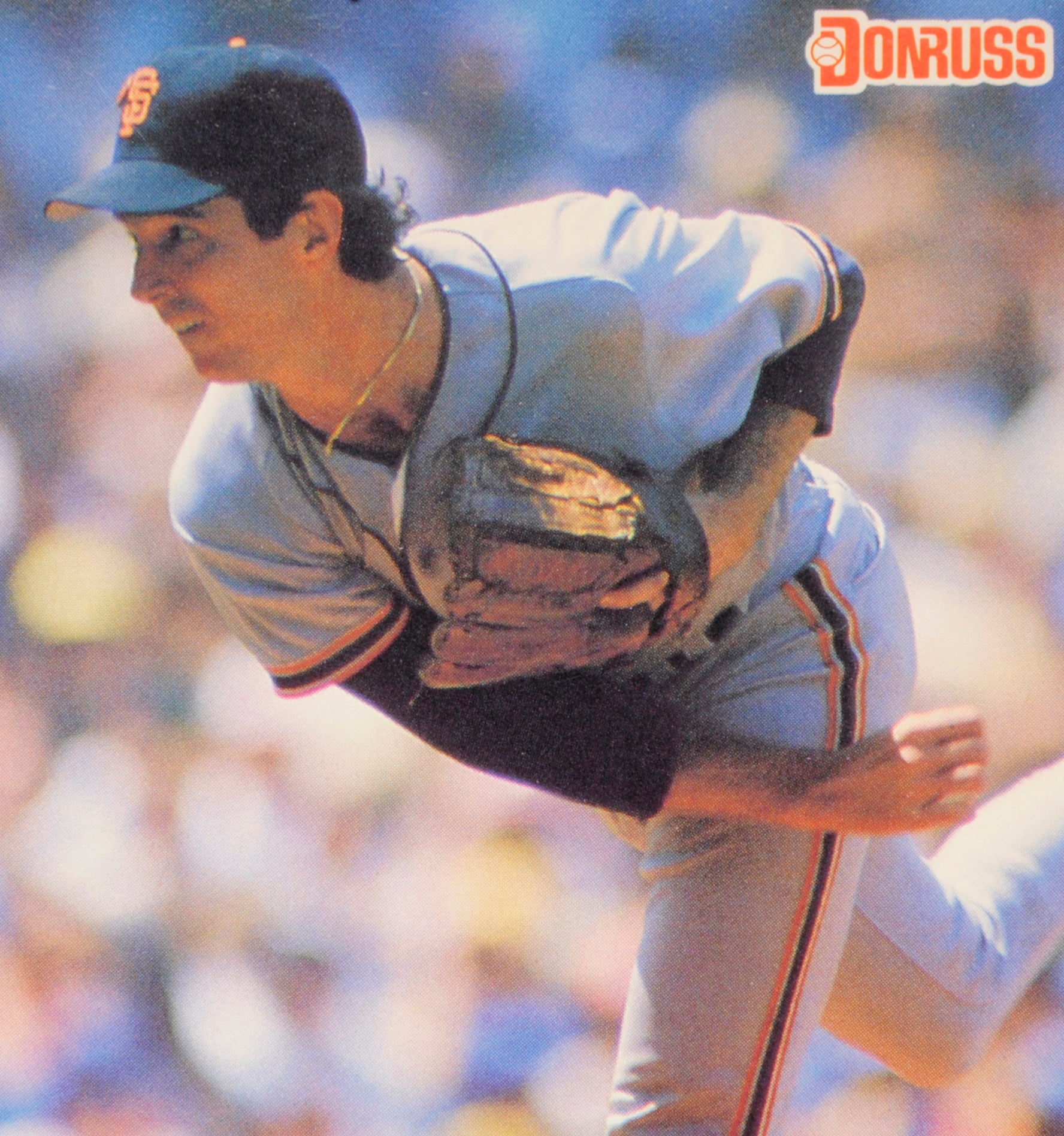
#CardCorner: 1987 Donruss Mike Krukow

#CardCorner: 1987 Topps Larry Herndon

#CardCorner: 1987 Fleer Dave Stieb

#CardCorner: 1987 Topps Mike Pagliarulo


